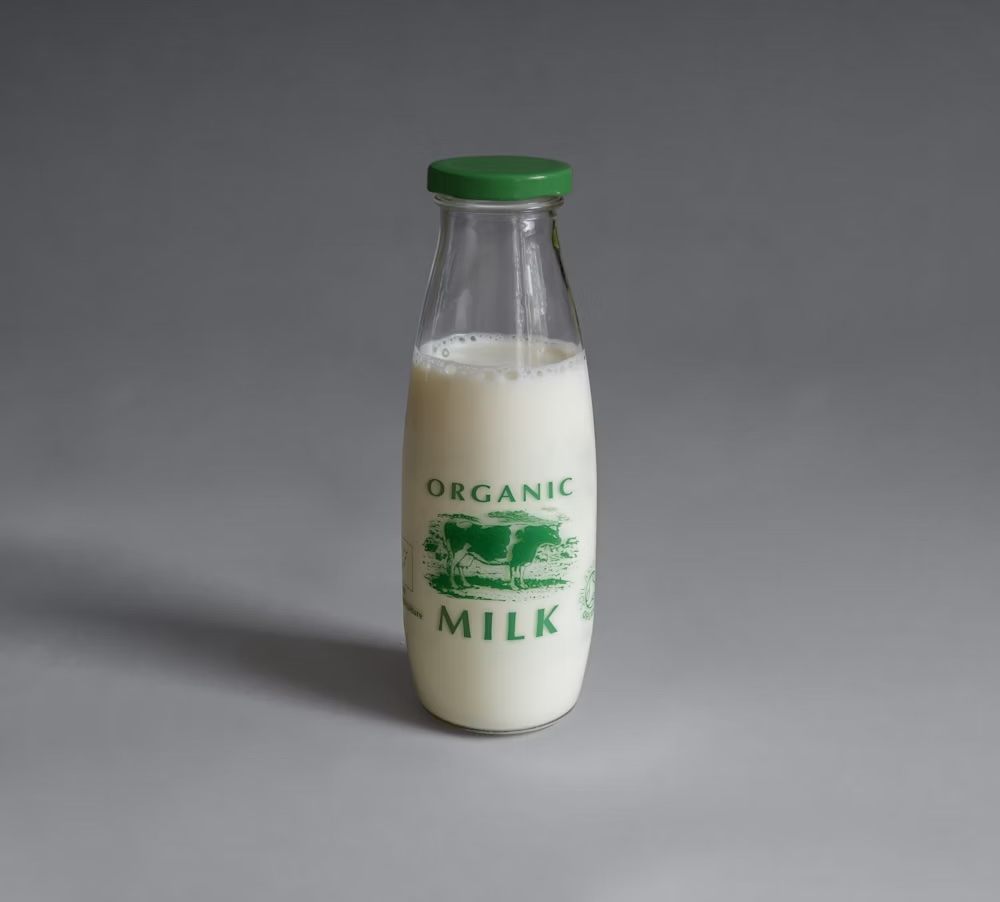For Saskia McCracken, worlds collide — briefly — in the hallway of a Glasgow tenement flat.

As I pulled back the curtains in each room, just a little light leaked in. The sky was that low, heavy grey, where the clouds don’t have shapes, they are simply all there is. Every room in the flat stayed dull, muted. Only the fridge glared bright as I opened it and realised there was no milk.
Putting on my dressing gown, I pulled the hood up, and, leaving the flat door open, walked down the stairs of the close in bare feet. The floor was cold. It was a Thursday in October, and the milk would be on the doorstep in glass bottles. As I reached the downstairs hall I saw something small and brown dart across the ground in front of me. It moved from the shadows on one side of the door to the shadows on the other. Too fast to be a leaf. A mouse, perhaps? Weak light illuminated the gap beneath the door where it must have come in. There had been mice in every tenement flat in Glasgow that I’d lived in, until this one. In our last flat, one had run across the back of the sofa and got caught in my hair. Another got stuck in the bin and I woke up to the sound of it scrabbling against the sides, trying to jump back out. We blocked all the gaps in the skirting boards and under the sink, kept our food high out of reach in old tins, our fruit secure in the bread bin. We kept the place spotless and covered the floor in mint oil because we heard that they didn’t like it. We never had the heart to lay traps. But I had never seen a mouse in this flat. I assumed our upstairs neighbour’s dogs kept them away.
But it didn’t run like a mouse. It had the flickering movement of a bat, hidden in the gloom of the still dark hall. There are pipistrelles in our garden. Sometimes I’d seen them flash across the dusk sky from the window. I often leave the curtains open as it gets dark and watch from the sofa, wrapped up in a blanket. They are so quick you don’t know if you’ve really seen anything until you have watched for a long time and got a sense of their dance across the evening. Then, when I can’t see them anymore, I draw the curtains and turn on the light. They are nocturnal, of course, so it would be strange to see one in our close in the morning. And their movements are so frantic, I couldn’t imagine one freezing with fear like this. I decided it couldn’t be a bat either.
Then the tiny creature hopped a little closer, where I could see it, before flying to the back of the close and fluttering like a moth against the back door to the garden. In that moment, before she took flight, I saw that she was a small brown bird. She was lightly dappled, with her tail pointing upwards and head cocked to one side as she regarded me with her bright black eyes. A wren. Too small to be a male. Delicate and quick.
I opened the front door and cold light spilled across the floor. I held it there, waiting. But she did not come. So I closed it, gently, and walked as I quietly as I could across the hall, trying not to scare her. When I reached the back door, she slipped out underneath before I could open it, and was gone.
The garden was scattered with yellow leaves from the chestnut tree and the grass had turned to mud. The few leaves that still hung on the tree were shining with rain. A grey squirrel dashed up the trunk. But I couldn’t see the wren anywhere. She had gone back to her secret world and left me to mine. I turned around, took the milk bottles from the doorstep, and went back upstairs.
*
Saskia McCracken is a Glasgow-based poet and prose writer. Her publications include ‘Imperative Utopia’ (-algia press), ‘The King of Birds’ (Hickathrift Press), ‘Common Name’ (Osmosis Press) and ‘Zero Hours’ (Broken Sleep Books). She was longlisted for the Nature Chronicles Prize and shortlisted for the Future Places Environmental Essay Prize.